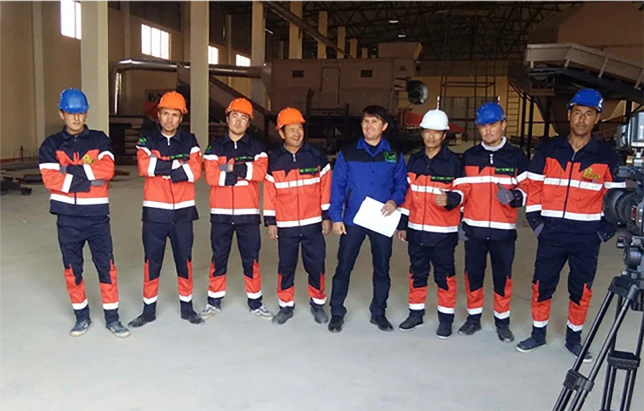

11-р сар . 24, 2024 05:04 Back to list
Industrial Shredders Revolutionizing Waste Management and Recycling
In today’s rapidly evolving industrial landscape, effective waste management and recycling have become crucial components of sustainability initiatives. Among the many tools designed to facilitate these processes, industrial shredders stand out as indispensable machines. These powerful devices are engineered to reduce the size of various materials, making them easier to handle, transport, and recycle. But what exactly are industrial shredders, and why are they so vital in various industries?
Understanding Industrial Shredders
Industrial shredders are robust machines designed to break down large volumes of materials into smaller, more manageable pieces. They are commonly used for a wide range of applications, including the disposal of waste, recycling of materials, and preparation for incineration. The types of materials that industrial shredders can process include plastics, metal, paper, rubber, electronics, and even medical waste.
The shredding process typically involves feeding materials into the machine, where they are cut, torn, or impacted by sharp blades. The design of the blades and the shredding chamber can vary depending on the specific type and model of the shredder, allowing for customization based on the materials being processed.
Applications Across Industries
Industrial shredders play a critical role in numerous sectors. In the recycling industry, they facilitate the processing of recyclable materials, such as cardboard, plastic, and metal, which can be transformed into new products. By shredding these materials, companies can enhance the efficiency of the recycling process, as smaller pieces are easier to sort, clean, and melt down.

In waste management, shredders are essential for reducing volume. Businesses generating large amounts of waste, such as manufacturing plants, construction sites, and waste treatment facilities, can significantly cut disposal costs by shredding waste materials. The smaller size of shredded waste not only reduces landfill space but also allows for more efficient transportation and processing.
Furthermore, industrial shredders are vital in the e-waste management sector. With the rapid advancement of technology, electronic waste has become a growing concern. Shredders specifically designed for electronics dismantle devices into smaller pieces, allowing for the recovery of valuable materials like copper and gold, which can be recycled and reused.
Environmental Benefits
The environmental benefits of industrial shredders are profound. By promoting recycling and reducing waste volume, these machines contribute to lower greenhouse gas emissions from landfills. Additionally, shredders help conserve natural resources by enabling the recycling of materials that would otherwise require new raw materials, thereby mitigating the impact of resource extraction.
Conclusion
As industries continue to prioritize sustainability, the role of industrial shredders will only grow in significance. Their ability to efficiently process a diverse range of materials not only streamlines operations but also strengthens the commitment to eco-friendly practices. Whether in recycling, waste management, or e-waste processing, industrial shredders are revolutionizing how businesses handle waste, ensuring a cleaner, more sustainable future for all. Investing in advanced shredding technology will undoubtedly pave the way for improved waste management systems and promote responsible recycling, fostering a circular economy where materials are reused and repurposed.
Latest news
Troubleshooting Common Eddy Separator Problems
NewsJul.04,2025
The Role of Metal Recycling Plants in Circular Economy
NewsJul.04,2025
The Impact of Recycling Line Pickers on Waste Management Costs
NewsJul.04,2025
Safety Features Every Metal Shredder Should Have
NewsJul.04,2025
How Industrial Shredders Improve Waste Management Systems
NewsJul.04,2025
How Cable Granulators Contribute to Sustainable Recycling
NewsJul.04,2025